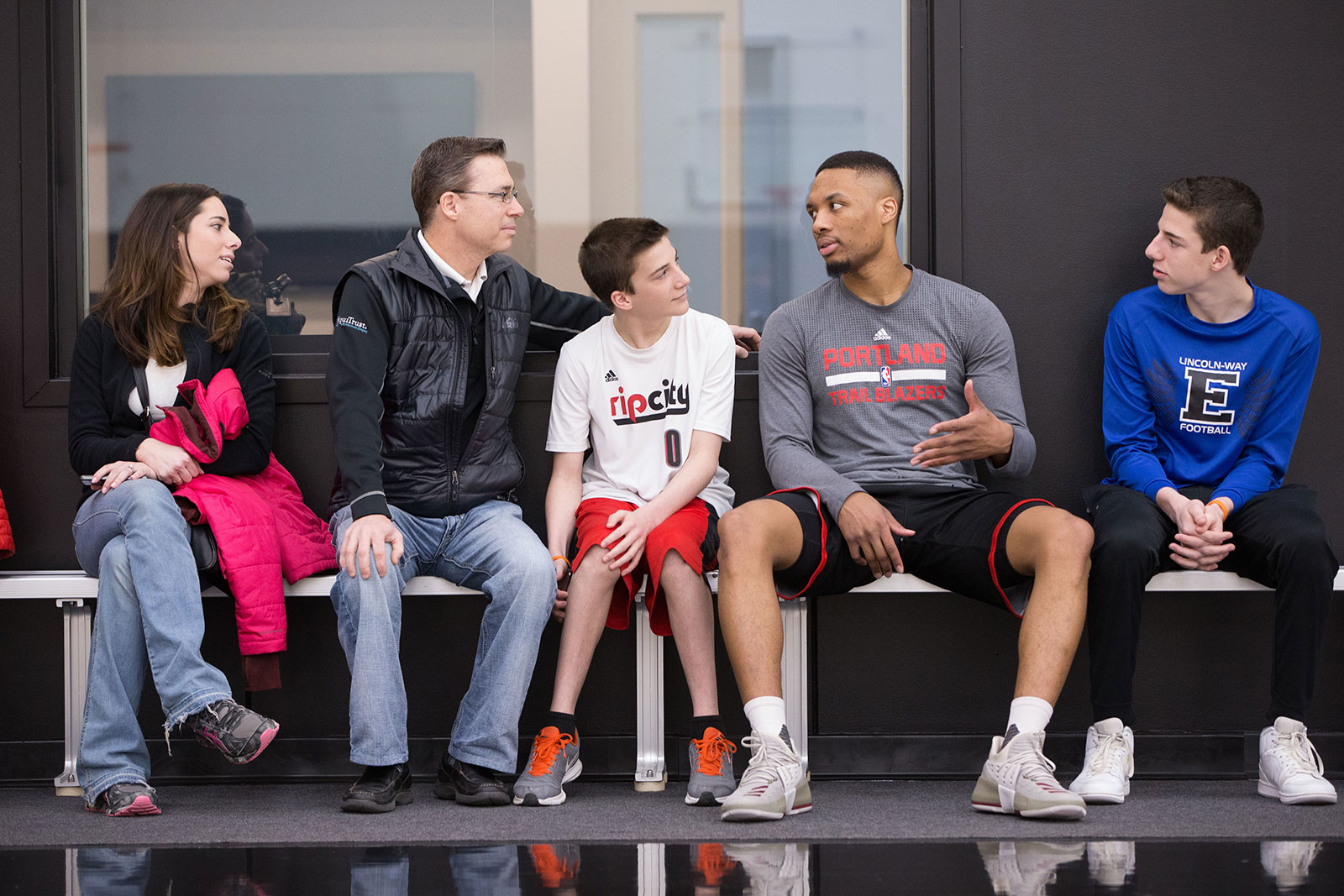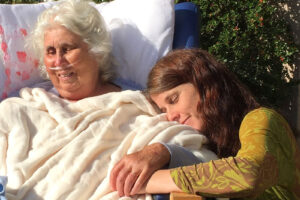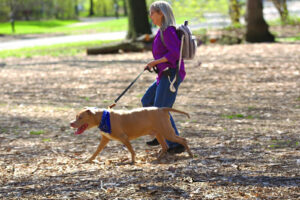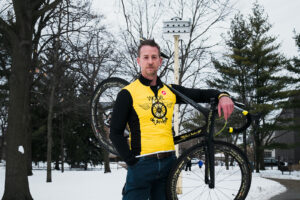No one ever thinks active, athletic young boys like Joe Moylan will receive a cancer diagnosis.
Described by his mother Flavia as “an intense athlete,” Joe played baseball, football and wrestled three to four days per week, all by the age of 12. But only a handful of days after his football team won their “Super Bowl” championship and the wrestling season began, Flavia received shocking news—Joe had super high-risk pre b-cell acute lymphoblastic leukemia.
Learning how to tackle his leukemia diagnosis took more than determination and a strong will. It also required radically transforming her son’s diet for the better. Nutrition not only kept Joe fed; it also gave Joe the best chance for a life after cancer treatment. “Sometimes, you have to pick and choose your battles when [a cancer warrior] is in bed and suffering, but sometimes, there are things that are not negotiable,” Flavia says. And Joe’s survival was not negotiable.
It was Joe’s wrestling coach who first realized something was wrong with the young athlete. A few days into their new season, Joe’s coach noticed he couldn’t run without catching his breath, and every few minutes, he had to lay down because he felt like he couldn’t breathe. “This kid went from three, four football fields in a day to [not being able to] walk from the parking lot to the doctor’s office,” says Flavia. While his coach thought he might have suffered from a hidden concussion sustained during the football season, his parents believed it was seasonal allergies.
A visit to the pediatrician confirmed neither. “I think that’s what I thought could be the worst-case scenario in my head,” Flavia says. “Like, it could be allergies; it could be a concussion. You know, best case, worst case.” Instead, the doctors told her Joe had a heart murmur. An EKG and blood work came quickly. Joe’s results showed he was anemic, something Flavia thought was reassuring because she was also anemic. “But he said, ‘He’s a boy. Boys don’t lose blood like that to be anemic. There’s something up with his blood,’” Flavia recalls. The doctor suspected he had leukemia. A few days later, after a bone marrow aspiration, the leukemia was confirmed. “I could have expected a million things, but [not] that,” says Flavia. “For a couple [of] days, I couldn’t wrap my head around it.”
“I knew he was terrified, and he was looking [to] us: me, my husband. He’s the youngest of three, so he’s looking [to] his brother and sister, grandma and grandpa, for direction. How is this gonna go?” Flavia says. “I just looked at him and said, ‘You know what? We’re going to tackle this head-on and we will figure it out. We’ll take it one day at a time and you don’t worry about it.’”
I just looked at him and said, ‘You know what? We’re going to tackle this head-on, and we will figure it out.
Beyond treatment methods like chemotherapy, tackling his disease head-on included making more concrete changes at home. Feeling like the nutritionist at her son’s hospital was limited in the information they could provide, Flavia turned to a cousin who works as a doctor and focuses on the study of autoimmune diseases. Flavia conferred with him daily and the cousin had access to all of Joe’s labs. “He took me by the hand and said, ‘Let’s try and keep him as healthy as possible without interfering at all with his treatment and medication,’” recalls Flavia.
He guided her in cutting certain foods out and adding certain things back in based on his symptoms. “The big decision was to take away sugar, and at the same time, try to figure out [what to do because] he’s a 12-year-old that likes candy and treats and snacks,” she says. It was a radical decision, but it was also something she knew “had to be done.” After doing research, she switched to a more ketogenic diet (a high-fat and low-carb diet with an emphasis on heart-healthy fats from a variety of sources to encourage the body to enter a state of ketosis). She also began incorporating bone broth every day into his morning meals while he received high doses of chemotherapy.
Understandably, Joe was not a big fan. “People are like, ‘Oh, you want to eat a bag of Doritos? Sure, honey, here’s five bags of Doritos, so long as you eat.’ I [said], ‘No. We’re gonna eat, but if you want to eat, I will sit with you and explain,’” remembers Flavia. “I said, ‘Do you want to fight here every day? It’s not a big deal. Do you want to get better and get stronger, or do you want a bag of Doritos?’”
Rather than forcing him to eat the way she wanted, Flavia and Joe made healthy eating something they could do together. “We searched for recipes together. We cooked together. We baked together,” she says. Soon, healthy eating became normal. Flavia also made the process reasonably easy: for every three days of “really good, clean eating,” Joe could receive one treat, whatever he wanted. Sometimes he’d choose chocolate chip pancakes or sugary cereal. “It was a balance for me,” she says. “I understood he was still 12 and he was not going to eat all clean food every day of his life.”
The results were evident almost immediately. While other kids were unable to keep food down or refused to eat, Joe maintained an appetite. According to a study from the Journal of Oral and Maxillofacial Pathology, malnutrition is one of the most common side effects of cancer treatment. It can affect up to 80 percent of patients depending on tumor type and stage. “I am such a believer that you are what you eat because [compared to] other kids with the same diagnosis at the same hospital [and] around the same age, I could see Joe getting better faster and recovering faster than his peers. I have to attribute that to the only difference: his nutrition,” she says.
It has now been 11 months since Joe completed his last chemotherapy treatment and he is starting to finally feel like his body is coming back. He recently completed his junior year playing football, winning the state championship, and continuing his love of baseball. Eating healthy (with treats here or there) remains a part of his everyday life. “I still feed him the same stuff, and now for him, it’s the normal thing,” she says.







